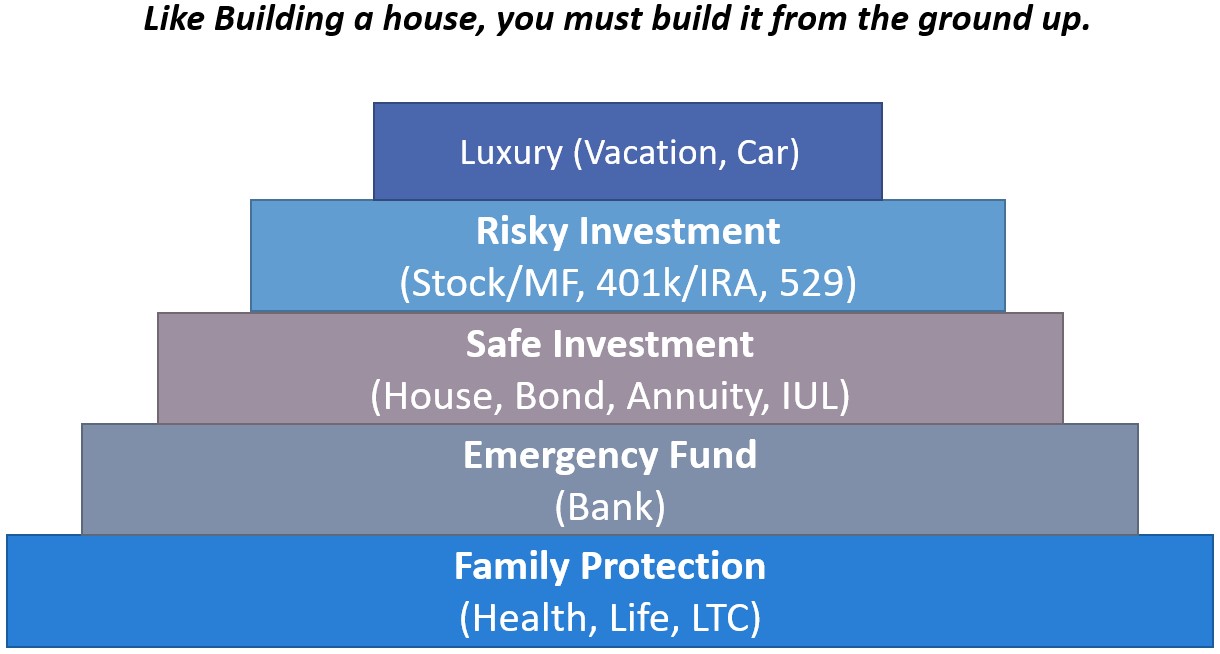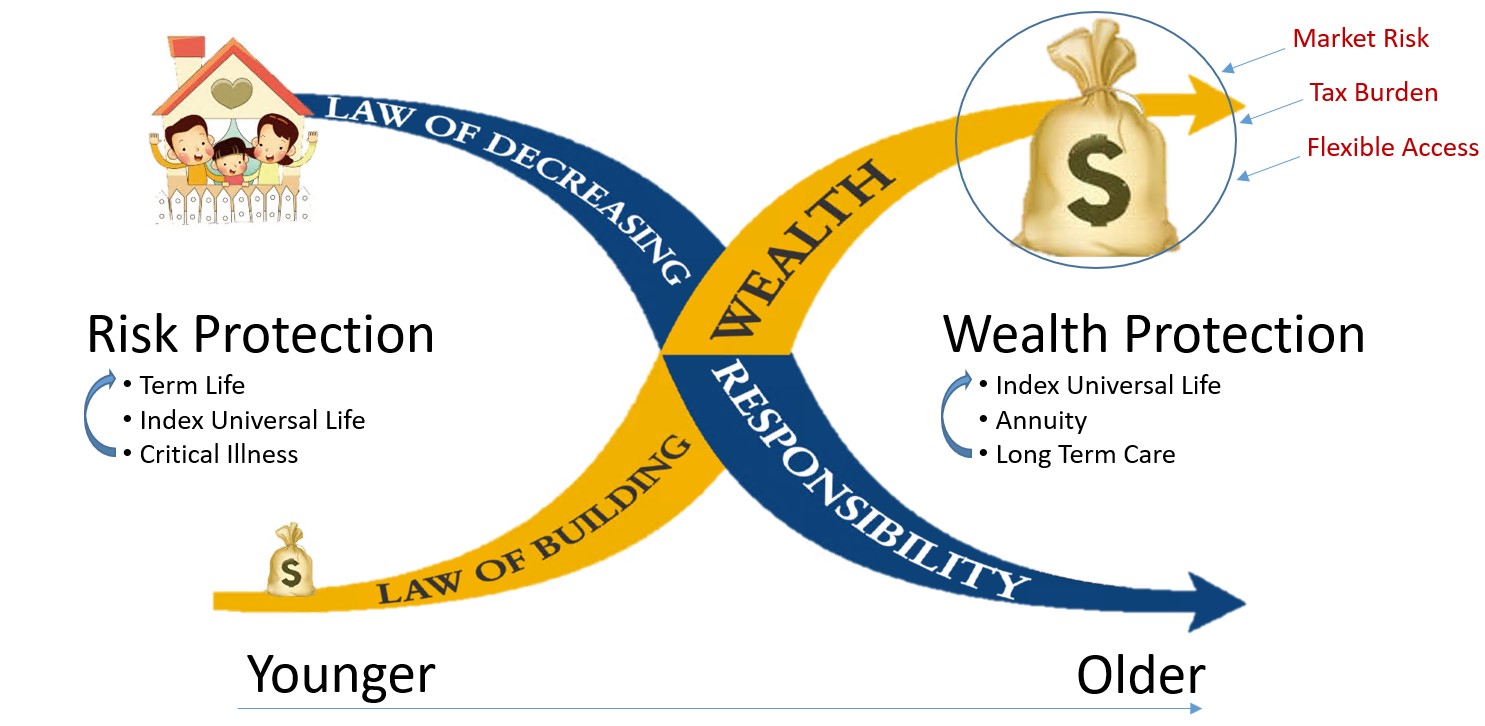Family Financial Planning
How many areas from this list have you taken care of?
Financial Foundation
Like building a house, we must build our financial foundation from the ground up. The steps are performed in order of importance. No one can predict what may happen in the future; therefore, it is always best all aspects are covered.
We go through each step and evaluate what our clients have and recommend better solutions if needed. Our mission is to make sure each family we work with properly plans for the future.
Make money, save money, grow money, and protect your money.
The X-Curve Concept of Wealth & Responsibility
In wealth building, one must understand the importance of the relationship between our responsibilities and the amount of wealth we have created. This concept is called the X-curve concept.
What is the X-curve concept?
The X-curve is a graph showing two major lines in our lives: the wealth or savings line and our responsibility line. It is shown that ideally from our younger to older years, our wealth and savings line should go up while our responsibility line simultaneously should go down.
The X-curve is divided into 4 quadrants. Quadrants I and II represents our younger years while III and IV represents our older years.
1. QI (Top Left): shows that when we are young, we have high levels of responsibility. One of our major responsibilities is our income from our job or business. The challenge is that our income is usually temporary (nobody works forever) and our needs for food, shelter, clothing, education, etc. are permanent. Thus, we are using temporary income to support permanent needs.
2. QII (Bottom Left): in quadrant 2, typically when we are young, we have little to no savings at all. That's why we work hard for money to provide for our family and ourselves.
During our younger years, we are very less secure. The question we need to consider is, what if we die too soon? Are we prepared? Is our family ready? Who will take care of them?
3. QIII (Top Right): due to the challenges in our younger years, we need to solve this dilemma by moving to quadrant III. From younger to older years, we need to build wealth; we need to build our savings and investment lines. The goal is to accumulate enough savings that will support us during our retirement years. With enough savings and investments, we pair it with the right financial knowledge we can then move to quadrant IV.
4. QIV (Bottom Right): in this quadrant having the right financial knowledge and enough savings and investment, one can enjoy a life of zero responsibilities. Why? Because we now let money work for us. How?
Example: At age 65, we now have $2M. Invest it at 7% per year (in a safe and secure savings or investment program). Every year, the $2M will provide $140k on earning each year. Money now is working for us. The $2M is intact, while we live off of interest.
During our older years, it should be expected that by following and understanding the X-curve concept, we should be more secure at this time. The challenge would be: what if we live too long and don't have enough savings? Who will take care of us? What if we are not financially educated and we don't invest our $2M savings? In 3 to 5 year's time, it will be depleted, leaving nothing for 70 and beyond.
Ultimately, the key to wealth building is having the discipline to save and taking the time to become financially educated.


